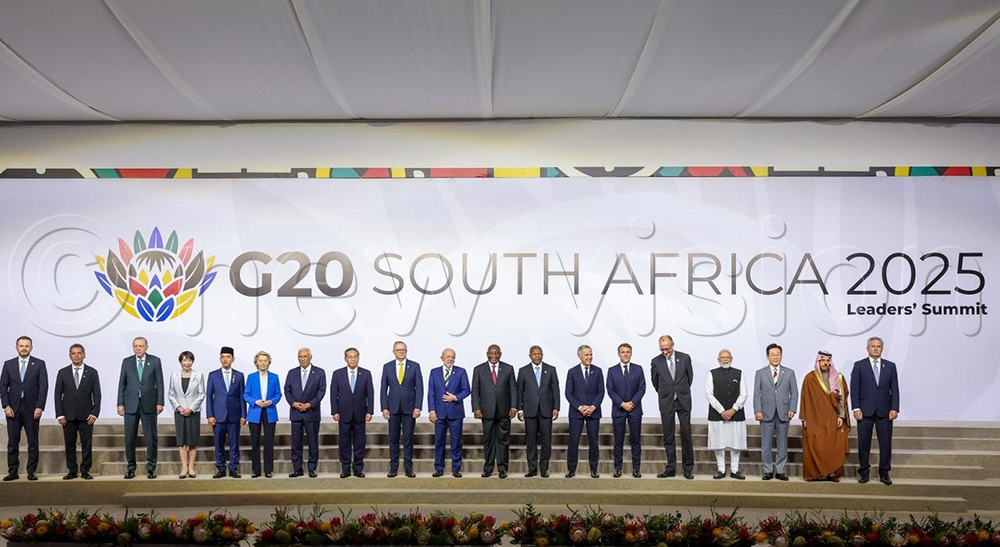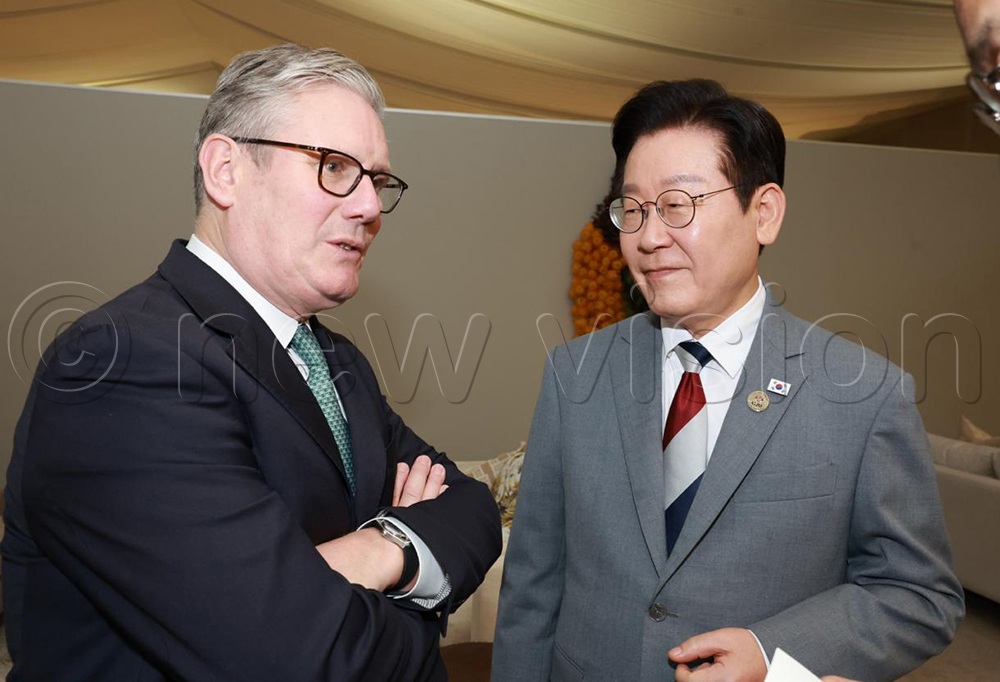G20 Leaders' Summit opens in South Africa
Ramaphosa said the world should strengthen disaster resilience and response, noting that while climate-induced national disasters affect countries around the world, they have a particularly devastating impact on countries that can not afford the cost of recovery and rebuilding.
The Group of Twenty (G20) Summit opened on Saturday, marking the first time the event is being held in Africa. (Credit: Hajarah Nalwadda)
JOHANNESBURG - The two-day G20 Leaders' Summit opened on Saturday in Johannesburg, South Africa, with the host country insisting on prioritising concerns of the Global South and the African continent to be put on the global agenda during its one-year G20 presidency.
Cyril Ramaphosa, South African President, while speaking at the opening, said that his country prioritised four main issues.
Ramaphosa said the world should strengthen disaster resilience and response, noting that while climate-induced national disasters affect countries around the world, they have a particularly devastating impact on countries that can not afford the cost of recovery and rebuilding.
"As a founding member of the G20, South Africa has sought to ensure that the development priorities of the Global South and the African continent find expression firmly and permanently on the agenda of the G20," Ramaphosa said.
Cyril Ramaphosa, South African President, while speaking at the opening, said that his country prioritised four main issues. (Credit: Hajarah Nalwadda)
He said the global community and international finance institutions, and the private sector should scale up post-disaster construction.
He said the G20 needs to ensure efforts to advance debt sustainability, especially in countries of the Global South that are suffering from debt repayment.
Ramaphosa told world leaders that they should mobilise finance for a just energy transition, increasing the quality and quantity of private finance flows to developing countries.
The other priority that South Africa focused on was the importance of having critical minerals for inclusive growth and sustainable development through the beneficiation of the minerals at the place of extraction.

The two-day Summit is being held under the theme "Solidarity, Equality and Sustainability." (Credit: Hajarah Nalwadda)
He said issues of inclusive economic growth, industrialisation, security, and artificial intelligence were also prioritised.
Oreshkin Maxim, Deputy Chief of Staff of the Presidential Executive Office and head of the Russian delegation, said the international financial institutions are currently deviating from development finance to military expenditure, noting that the World Bank has provided Ukraine with more aid in three years than to all African countries combined.
Maxim said these financial institutions should be reformed to benefit the Global South.
He noted that the global economic structure has changed with blocs like the BRICS and countries of the Global South now dominating global growth.
"We have the talent, the resources, the technology, and the capacity to drive growth and improve the lives of our people," Maxim to the meeting. He notes that the Global South is ready to move forward with its own platform for economic growth based on its own solutions.

Prime Minister of the United Kingdom, Sir Keir Starmer (L), talking to Korean President Lee Jae Myung (R) during the open session of the G20 Leaders' Summit at the Johannesburg Expo Centre in South Africa. (Credit: Hajarah Nalwadda)
Keir Starmer, British Prime Minister, said as before, the G20 needs to work together to fix fundamental challenges facing the globe.
"The role of the G20 is critical at this moment; growth must be a mission for us all to embrace," Starmer said.
Invited as a special guest, Namibian President Netumbo Nandi-Ndaitwah said the global financing architecture needs to be reformed, noting that developing countries are debt-trapped because of the high cost of capital, which is high-priced based on false risk.
"If our financial architecture is not fit for purpose, we will continue to see the pressure of a looming global debt crisis that intensifies the imbalance between the developing countries. We are not seeking free money; we want fair and equal financing opportunities," she said.
Vincent Magwenya, Ramaphosa’s spokesperson, said a leaders' declaration was adopted unanimously in Johannesburg. Among the four major conflicts the declaration identified include the Democratic Republic of Congo, Sudan, Ukraine, and the Palestinian crisis.